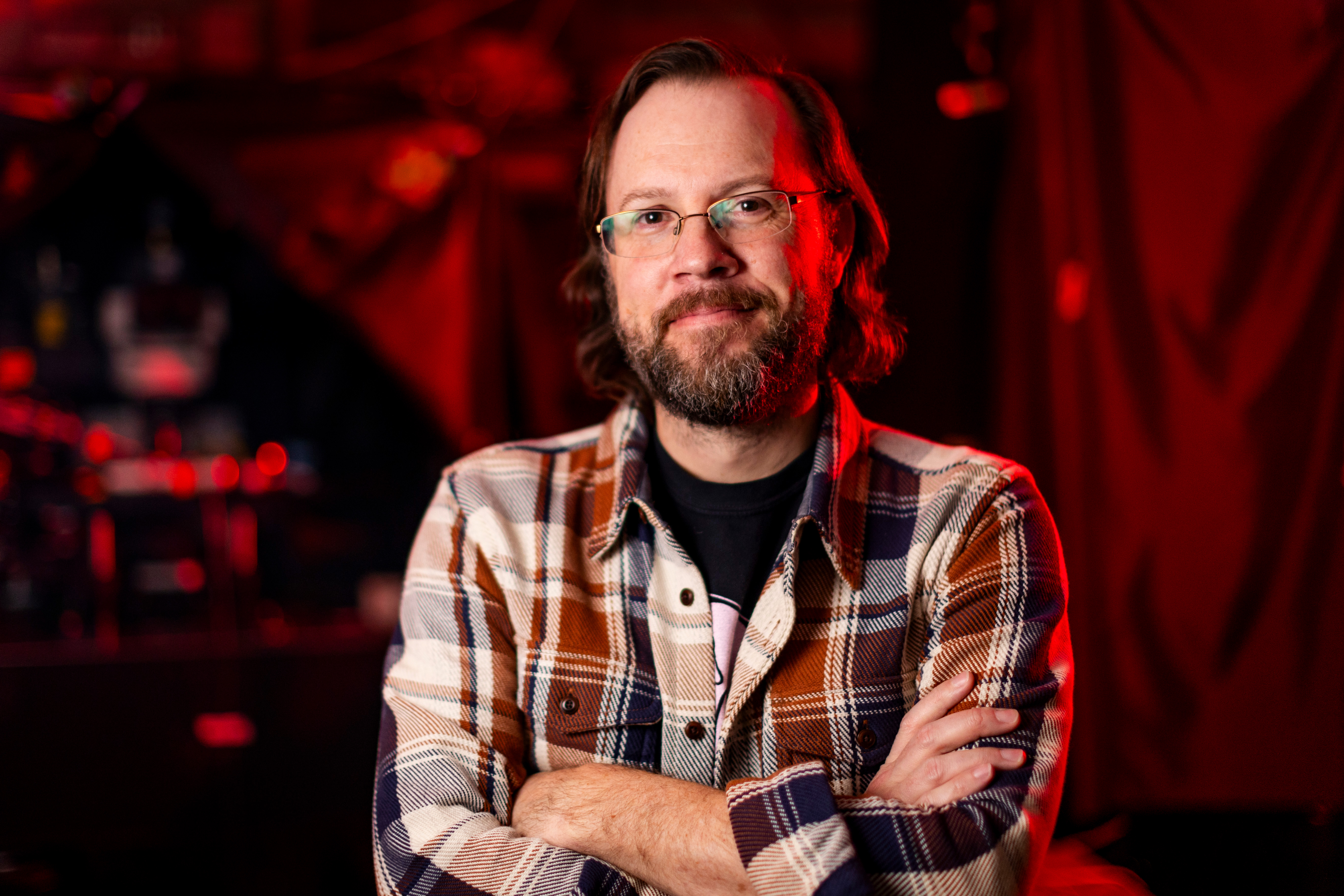In addition to the performances, the group also runs workshops to help members develop their skills, provides soundtracks and introductions for events, and hosts socials featuring film screenings and video games.
This is the MIT Video Game Orchestra , a student-led group dedicated to performing original arrangements of video game music, film soundtracks, and other kinds of music not usually heard in concert halls. The group performs at least two concerts a year, and all arrangements are written by members of the orchestra and tailored to the group.
The 90-minute performance goes on to incorporate saxophones, cellos, percussion instruments, a French horn, and a variety of other instruments. But with due respect to Beethoven and Bach, their work did not make the program on this night. Instead, the orchestra offered emotionally stirring renditions of songs from video games like “Mario Kart”, “Plants vs. Zombies,” and “Pokémon.”
Around 50 musicians crowd the well-lit Kresge Auditorium stage. They wear formal black attire and concentrated facial expressions. As the conductor carefully raises her baton, the audience comes to a perfect silence. A single piano lets forth a delicate cascade of high-pitched notes and is soon joined by a dozen violins that burst into a catchy, fast-paced melody. Many audience members look at their friends and smile. They recognize the tune.
“I think it’s really cool that there are so many genres that fall under the umbrella term of video game music,” says junior Lynn Jung, who serves a co-music director of the group. “It allows you to explore different musical avenues.”
Many members of the group grew up learning classical instruments and playing classical music. The Video Game Orchestra gives them the opportunity to break that mold and play music more in line with their interests.
“I was definitely into video game music growing up,” says Alex Wardle, a junior who is in charge of managing the group’s library of music. “I listened to it a lot in high school and I really wanted to perform it, but I didn't have the opportunity. None of the music groups that I joined would cover modern soundtracks. I always wished there was an opportunity for me to get to play some of the pieces I really love.”
The group’s organizers are quick to point out that a love for video games is not a requirement for joining. Some students join because they want to continue playing their instruments in a more casual environment. But many came to the Video Game Orchestra to merge two longtime hobbies.
“I was more into playing video games than listening to them, but at the audition, I remember saying, ‘I like video games and I like music, so I will definitely like video game music,’" Jung recalls.
Beyond the tunes, there are several key differences between the group and a traditional orchestra, the largest being the open approach to preparing the arrangements.
“It's a more collaborative environment, where it’s less the conductors choosing the music we play and more of a community effort based on the pieces we like as a community,” Wardle says. “Through our feedback process with arrangements, it becomes this group effort in which everyone’s working together.”
A key part of that process is inviting students to try their hand at writing music through workshops each semester.
“I had a little background in writing music. I loved listening to videogame music and I’d played for quite a while, but I definitely hadn’t done anything like an orchestral arrangement,” Wardle says. “By playing student-made arrangements my first year, I realized I could do something like that. There were people I could reach out to, like other students, who had done it in the past, so I jumped straight in and have been pushing out arrangements ever since.”
Many members joined because they loved making music and video games, but they say they’ve stayed because of the community.
“A big reason I’ve stayed in VGO is the community and the people,” says Ishika Shah, a senior who serves as the group’s co-music director. “It’s been a great way to meet new people and join a community I’ve really enjoyed being a part of.”
The group’s organizers encourage participants to mingle outside of their instrument section, and rehearsals are often interspersed with casual talk of music and video games. But the music and performances are still taken seriously.
Concerts have had as many as 200 attendees — with many more watching online (the group’s YouTube channel features most performances). Renditions of emotional pieces have sometimes moved people to tears, and because many people attend out of an interest in video games, the group attracts a broader audience to orchestral music than traditional symphony orchestras.
In addition to classically orchestrated headliners, the orchestra also plays pieces that feature more rock or jazz and that get people dancing and clapping along. In one performance of a karaoke favorite, “Baka Mitai” (or “I’ve Been a Fool” in Japanese), the orchestra invited the audience to sing along.
The orchestra’s decisions are guided by whatever sounds fun — and for the people that don’t put video game music in the same class as Beethoven, the group believes they’re adding credibility to a perhaps underrated genre.
“Honestly, I think at the end of the day what I care about when I am listening to music or playing music is just that the music resonates with me in some way, or that it’s fun to listen to or fun to play,” Jung says. “For some people, that might be classical music, but for me that happens to be a lot of video game music.”














